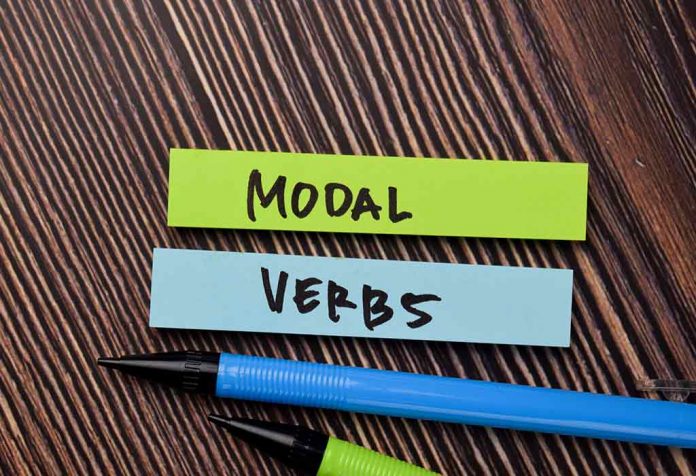When we introduce a language to a child, there are a number of ways it helps in their development – they are able to express and understand their feelings, they are able to think and learn better, solve problems faster and even develop relationships with people around them.
When it comes to English or any other language, it is crucial to introduce them to literature that can help them understand this better – in the form of books and other reading material that you can read to them first, and then, they pick up on their own.
Thank you for reading this post, don't forget to subscribe!
In English, the ‘verb’ plays a huge role in forming and completing sentences. The best way to introduce them to the concept of verbs is when you talk about names, age, feeling, nationalities and even professions. Before we get into details, let us define what a verb actually is.
Verb are words in the English language that show a sort of action (singing, dancing), occurrence (develop) or even a state of being (existence). Almost every sentence needs a verb. The modal verb can show whether or not the subject in question is able to do something, such as perform an action or show some sort of an ability.
What Is The Meaning Of The Verb ‘Can’?
When we talk about modal verbs, we know them as being helper verbs that can affect the meaning of a main verb, by adding a modality or quality to the action. In most cases, it is possibility, probability, obligation, recommendation or futurity.
In terms of possibility, some examples are – can, could, may or might.
Conjugation Of The Word ‘Can’
Can is almost always followed by an infinitive without ‘to’. For example – I can speak French.
At times, it is used without a following infinitive. For example – Come and help us, if you can!
The word ‘Can’ does not change its form in any way, so the third person singular form does not end with an ‘-s’. For example – She can speak Korean.
Negatives and questions are formed without ‘do’: Can you take a walk?
The negative form of ‘Can’ is ‘Cannot’. For example – We cannot allow her to go back to class. Cannot is often turned into a short form in any conversation or casual writing in the form of ‘can’t’. For example – I can’t find my umbrella.
Present Simple Form – ‘Can’
The verb ‘Can’ needs the infinitive form of the verb after it. The rule is – Noun or Pronoun + can + infinitive + other parts of the sentence.
Can only has one form. It does not change with he/she or it.
I can
You can
He/She/It/They can
We can
Examples :
- I can understand what you mean.
- They can see that far, surely!
- We can go for a picnic tomorrow.
Negative Form Of The Verb Can
The negative form of the verb ‘can’ is cannot or can’t.
For example
- You cannot stay out this late.
- She can’t really speak the language.
- I can’t call you then because my phone is under repair.
Here are some more examples of ‘Can’ in verb form –
- I can drink coffee today.
- She can make it to the party, hurrah!
- Can you please bring me my tea?
- How can you say this?
- Yes, you can meet your friends now.
- Can you sit up?
- He can go for a walk on his own now!
- She can speak 4 languages.
Past Simple Form Of Can
Just like in present tense when ‘can’ is the conjugation that is used for all the subjects, the past simple verb for can is ‘could’, that is used in a similar fashion.
He/She could
They could
You could
I could
Nagative Form Of The Word Can
The negative form is ‘could not’ or if we were to shorten it, ‘couldn’t’.
Example :
- I couldn’t sleep last night.
- Why couldn’t you bring in your homework?
- She couldn’t read what was written on the board.
Now, let us look at some modal verbs in past tense – use of could with examples below –
- Could you understand what he said?
- They couldn’t park i nfront of the gate.
- They could take photos in the museum.
- She couldn’t leave town for Christmas.
- Could he pay the bill? Yes, he could.
- They could take the kids to see the film.
- I could bring the cakes for you tomorrow.
- Could you please help me with these boxes?
Future Form Of Can
When you’re looking at the future tense for the verb ‘can’, this tells us if something is likely to happen. In many cases, ‘can’ expresses that something is certain, while ‘could’ indicates that something may or may not happen.
There is no direct future temse for ‘can’, but it can be said that someone ‘will be able to’ do something or something will be possible in the future.
Here are some examples of the future form of the verb ‘Can’ –
- I will go to the cinema tomorrow.
- She will definitely play the game tomorrow.
- They will make it to our home next month.
What Are Some Of The Uses Of The Verb ‘Can’?
The verb ‘Can’ is used to express some sort of ability, opportunity, request or to even grant permission to show possibility, probability or impossibility.
Let us look at some of the uses of this verb –
1. To talk about abilities –
This is for both the past and present form of the verb, and it means that a person was able to do something.
Examples –
- This fish can swim!
- She can speak two languages.
- He can run very fast.
- Prasad can eat a variety of food daily.
2. Talking about permission in the present and the future tense
This verb, in the present tense, also helps with asking for and giving permission. Its past form – could – can also be used to ask for permission in a polite way.
Examples –
- Can you come with me, please?
- Could you plese approve this?
- You can borrow my book now.
- All the students can go back to their classrooms.
3. To talk about what’s possible or impossible
This particular verb can also be used to talk about something that is possible or impossible.
Examples –
- The winter can be really cold.
- This can’t be here, please take it away.
- It could get really dark here.
- You cannot sit on this chair.
Examples Of ‘Yes’ Or ‘No’ Questions With The Verb ‘Can’
Let us now look at some examples of questions and answers that use the verb ‘Can’ –
1. Question: Can I eat ice cream?
Answer: Yes, you can today.
2. Question: Who can you reach out to for this problem?
Answer: I believe Mary can help me out.
3. Question: Do you think you can get good grades this year?
Answer: Yes, I do believe I can score high marks!
4. Question: Can Tianna speak in 4 languages?
Answer: Yes, she actually can!
5. Question: How high can that bird fly?
Answer: The bird can fly very high in the sky.
6. Question: Can I go to bed now?
Answer: Yes, you can.
Also Read:
Modal Verbs for Children
Even Number for Kids
Pronouns For Kids To Improve Vocabulary











